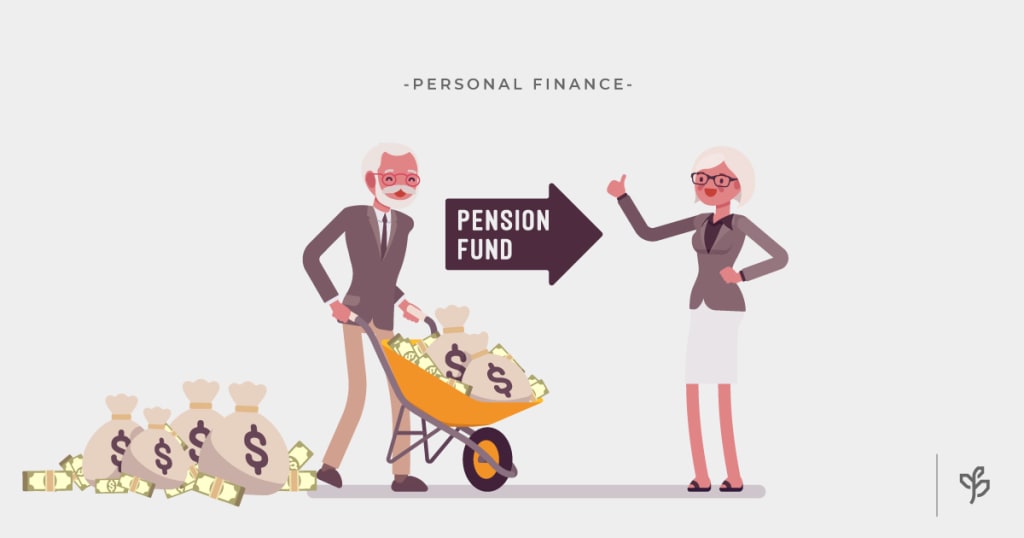All You Need to Know About Retirement
If you are one of those who hasn't thought about a financial future, don't worry because it is never too late to start saving for retirement.

If you already have a retirement plan, Congratulations! You're ahead of a sizable portion of Americans. In fact, according to the Economic Policy Institute (EPI), nearly half of families have zero savings for retirement.
A straightforward concept of a retirement plan is the one you do to be financially ready for the period of your life when you are done working. This plan also includes non-financial aspects such as where to live, when to stop working at all, and what you will spend your time on.
What can I do to plan my retirement?
It really doesn't matter how old you are. You can never be too young or too old, to begin with, a retirement plan. This is a guide on the actions you can take to prepare for your retirement based on the stage of life you are currently in.
Young Working Life (21-35)
If you are starting a professional life, you may not have a lot of savings you can invest. However, the bright side is that you have a lot of time to make your investments grow, thanks to compound interest. This investment feature allows you to earn interest over your interest, making your investment capital larger each time.
Say you start saving just $30 each month due to the wonder of compound interest. It will have tripled its value if you invest it at 25 rather than start investing at 45.
Early Middle Age (36-50)
This is a critical point of life in which you need to give special attention to your retirement savings. In this stage, you may start having some financial stress due to credit card debt, mortgages, loans, and so on.
Despite these hurdles, the higher income you will be earning, and the time you still have to make your investments grow to make this phase, the best years to get some significant savings.
Later Middle Age (51-65)
Even if the time to earn good returns from compound interest may be running out, there still are some advantages you can use in your favor.
By this point, you may be done paying all your loans at mortgages, which leaves you with more available income to invest.
Also, you will be earning greater wages as you will start getting some of the benefits from Social Security which you can use in favor of your retirement savings.
The sooner, the better
Whether you just started saving for retirement or you are only a few years from quitting work, there are some aspects about retirement planning you need to consider.
Saving for retirement should be top of your list. The rule of thumb is as soon as you start earning, start saving. Even if you think you'll retire in 40 years, saving for old age should be just as important as paying your bills.
We all make excuses. 'Just as soon as I've paid off my debts' or 'after I've traveled the world,' or 'when I get a pay rise.' The reality is, whether you fall under millennial or baby boomer, now is the time to start putting money aside for your retirement.
Time is your saving sidekick
Let's say you start saving for your retirement at age 25 and put aside $3,000 a year in a tax-deferred retirement account (explained below) for ten years. Then you stop saving completely. By the time you reach 65, your $30,000 investment will have grown to more than $338,000 (assuming a 7% annual return), even though you didn't contribute a dime after 35.
If you put off saving until you turn 35 and save $3,000 a year for 30 years, you will have set aside $90,000 of your own money by the time you reach 65. But, it will only grow to around $303,000, assuming the same 7% annual return. That's $35,000 less!
Hang on a minute; how does that work? It's simple. Each year's gains can generate their gains the following year – a powerful wealth-building phenomenon known as compounding.
So, the sooner you start saving, the more time you have to grow your money. Aha! (light bulb moment).
Read also: 10 proven strategies to save money that actually work
The Takeaway
If you're young and you can't save much right now, don't be discouraged. Your income is likely to go up as you move up the career ladder, allowing you to save more each year.
Remember, when you plan your budget (what you'll need to live comfortably), make sure your yearly contributions meet your savings target. Then, if you're struggling to cover your expenses and meet your saving goals, get rid of wasteful habits.
That might mean swapping your daily $3-a-pop coffee for a home-brewed one or umami lunch bowls for packed lunches.
About the Creator
FlexInvest
Investing and finance made simple.






Comments (1)
Thanks for the interesting article. I would also like to add starting saving for retirement at 55 is a wake-up call, but that shouldn't alarm you, especially if you're ready to turn on a new leaf and put your priorities in the driver's seat. This guide teaches you how to do so and secure your legacy. However, retirement planning isn't a one shoe fits all approach—your situation might be different. Contact wealth management advisor in Portland today to discuss your options https://interactive-wealth.com/